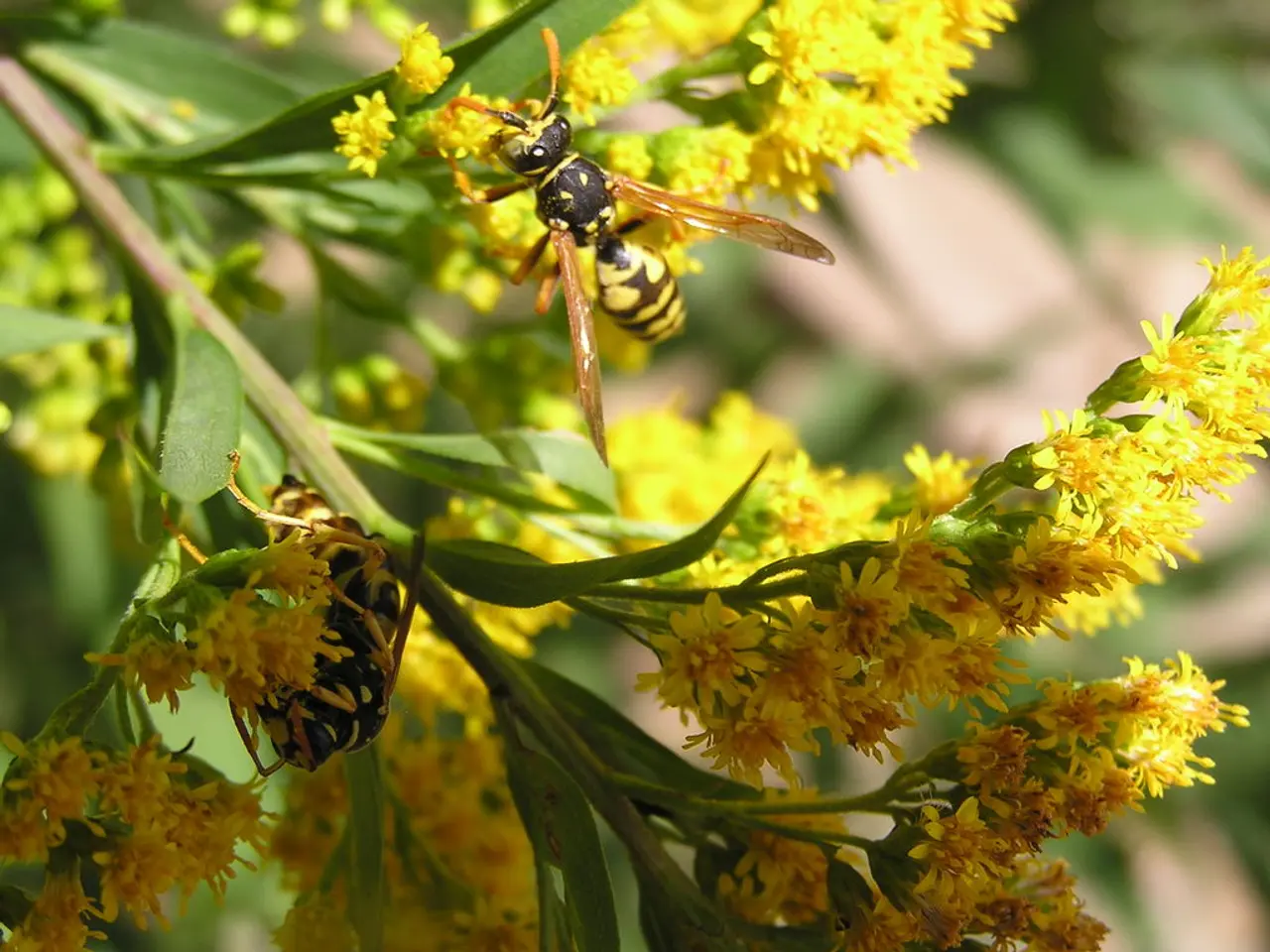Methods for Eradicating Aphids Organically in Your Garden and Home
Aphids, one of the top 10 gardening problems, can pose a significant threat to your indoor plants. These tiny pests suck plant sap and their saliva is toxic to plants, potentially killing the entire plant and transmitting diseases. However, there are several natural methods to get rid of aphids without resorting to harmful chemicals.
Insecticidal Soap Sprays
Mix pure liquid soap (such as Castile soap) with warm water and a small amount of vegetable oil to create an insecticidal soap spray. For example, combine 2.5 tablespoons each of vegetable oil and liquid soap with 1 gallon of warm water, then spray the mixture directly on infested plants, covering both top and undersides of leaves. This spray suffocates and kills aphids on contact without harming most plants.
Neem Oil Spray
Neem oil is a natural insecticide that deters aphids and other pests. Mix about 2 teaspoons of neem oil with a gallon of water and a few drops of mild soap. Spray it thoroughly on the affected plants. Neem disrupts aphids' feeding and reproduction cycles, gradually controlling infestations.
Garlic or Chili Pepper Sprays
Make a repellent spray by blending garlic bulbs or hot chili peppers with water. For garlic, crush a head and soak it in water overnight; strain and spray on plants to make them unappealing to aphids. For stronger action, mix garlic or chili pepper with liquid soap and water before spraying. These sprays act as natural deterrents.
Mechanical Removal and Water Spray
Regularly blast aphids off the plants with a strong spray of water using a spray bottle. This physically removes many aphids and prevents them from settling back. Early infestations can also be controlled by manually removing or crushing aphids on plants.
Citrus or Tomato Leaf Sprays
Citrus essential oils (lemon or orange) diluted in water can deter aphids. Also, tomato leaf infusions diluted in water can be sprayed on plants for natural control.
Additional Tips
- Apply treatments thoroughly on all plant surfaces where aphids hide, especially the undersides of leaves.
- Repeat applications weekly or as needed until aphids are controlled.
- Using a combination of methods (soap spray, neem oil, and mechanical removal) often yields the best results.
These natural solutions avoid harmful chemicals, making them safe for indoor use around children, pets, and beneficial insects. Additionally, attracting birds that eat aphids by using bird feeders, birdhouses, and birdbaths can help control aphid populations. Composting plants attacked by aphids can be done, but dropping them in a pile of soapy water before adding to the compost pile ensures complete elimination.
Adopting an organic lifestyle, consider creating a compost pile with plants that have been affected by aphids, ensuring the pests are eliminated before adding the plants to the compost. Incorporate garlic or chili pepper sprays into your home-and-garden routine to repel unwanted aphids, making your indoor garden less appealing to these pests. To combat aphids, try planting flowers such as marigolds, which are known to naturally deter various pests.
Instead of chemical insecticides, consider using a neem oil spray as a natural insecticide that deters aphids and other pests. Removing aphids mechanically by blasting them off plants with a strong spray of water helps in preventing infestations. With regular applications of insecticidal soap sprays, made with pure liquid soap like Castile soap, you can suffocate and kill aphids on contact.
Gardening enthusiasts can also create a fertile home-and-garden ecosystem by attracting birds that feed on aphids with bird feeders, birdhouses, and birdbaths. The combination of methods such as soap spray, neem oil, mechanical removal, and natural deterrents often yields the best results when dealing with aphids in your garden.




